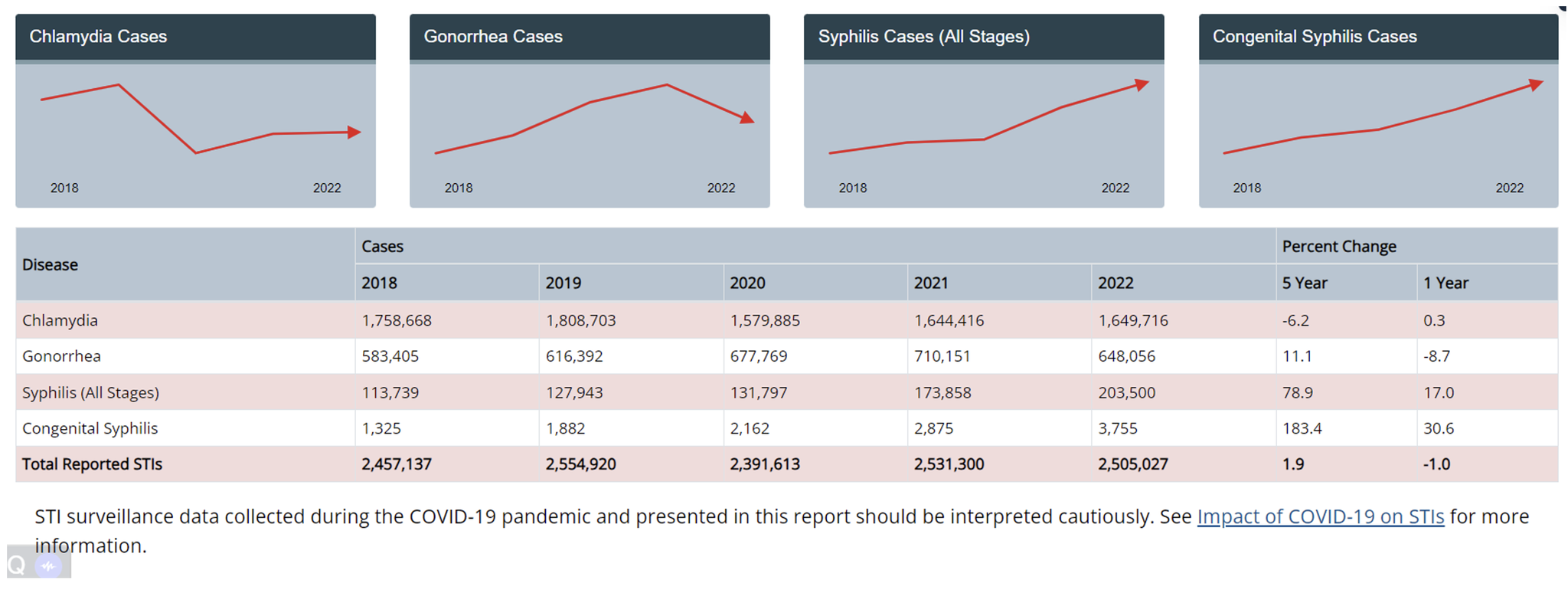Both the World Health Organization (WHO) and the Centers for Disease Control and Prevention (CDC) have recently reported drastically increased rates of syphilis and, correspondingly, congenital syphilis recently. The WHO estimates that 7.1 million people globally acquired syphilis in 2020. The table below from the CDC shows a 78.9% increase in syphilis cases generally over the 5-year period from 2018 to 2022. Even more concerning, over that same 5- year period there was a 183.4% increase in congenital syphilis (that is, syphilis transmitted from an infected pregnant woman to her unborn child), and a 937% increase from a decade ago.

Among the greatest risk factors for syphilis are high risk sexual behaviors and a high number of sexual partners. However, what is surprising about the data is that the incidences of chlamydia and gonorrhea have remained relatively flat over that same 5-year time period. This would seem to suggest that there has not necessarily been an increase in risky sexual behaviors, but rather that the prevalence of syphilis has been increasing within the general population.
There are many potential reasons for this. One of the most commonly cited explanations by health organizations is insufficient testing for syphilis. One much less credible explanation given is a shortage of long-acting penicillin (trade name Bicillin) over the past year. While that might explain a rise over the past year, it does little to explain the rising trend over the 10 years prior. Moreover, there are other alternative treatments for syphilis, such as doxycycline.
One thing that is important to know about the disease course of syphilis is that it often has long periods where the infected individual may have no symptoms at all, and these periods can be up to decades long! Consequently, infected individuals who are asymptomatic are less likely to seek medical attention for testing and treatment. This, in turn, means that infected individuals could potentially be unwittingly transmitting the disease to others for years at a time before their syphilis symptoms recur and prompt seeking medical treatment. Syphilis is further complicated
by the fact that it can present in all manner of symptoms that one might not necessarily associate with a classic STD, thus leading to failure to successfully recognize and treat it. For this very reason syphilis is often colloquially called “the great imitator” amongst the medical community.
Greater awareness amongst both the general population and medical providers, combined with developing better and more frequent testing protocols would likely go a long way towards stemming the rising tide of syphilis. Successfully squelching syphilis need not be a Sisyphean task.
Book Appointment Now Call For An Appointment